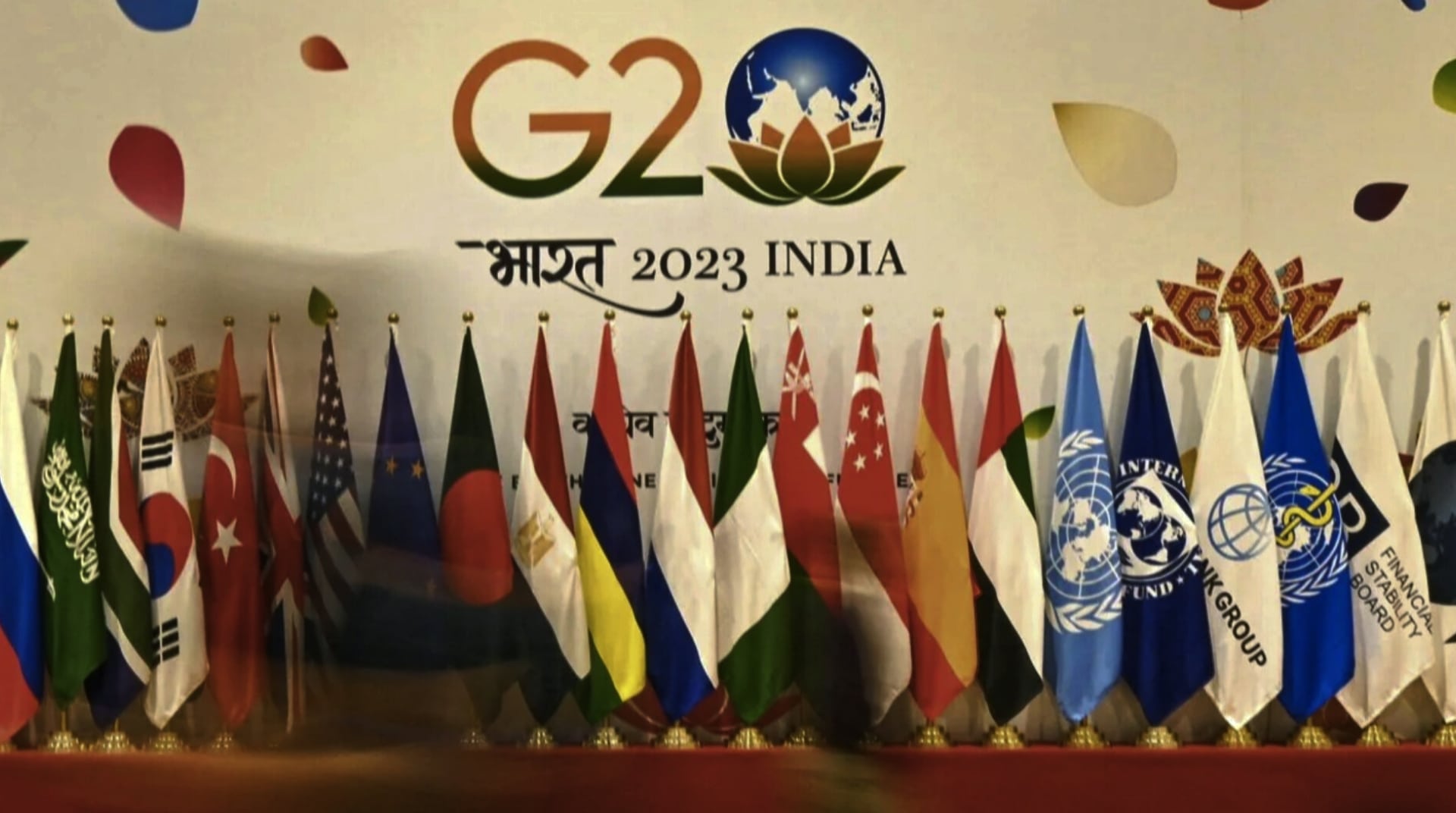The phrases “globalization” and “interconnectedness” are almost used synonymously. The globe has become the size of a small village as a result of globalization. In the Extraordinary Virtual G20 Leaders’ Summit 2020, Indian Prime Minister Narendra Modi urged attendees to imagine a worldwide society that has humanity at its core. The Prime Minister also focussed on issues such as terrorism, climate change, and humanity rather than the regular practice of focusing on banks and the economy.
A two-day G20 meeting will begin on Friday in India with the arrival of leaders, from the top economies in the world. As the G20 Summit preparations are being carried out with complete zeal, the Aam Aadmi Party (AAP) and the central government have both claimed credit for renovating our national capital. The traffic around Connaught Place and upscale South Delhi has slowed down. Shivlings have been installed in the form of fountains, and every single lane is now illuminated with flowers, lights, and billboards. India, for the first time, will play host to the Group of 20 Nations, or G20. In addition to India, the G20 group consists of Argentina, Australia, Brazil, Canada, China, France, Germany, India, Indonesia, Italy, Japan, the Republic of Korea, Mexico, Russia, Saudi Arabia, South Africa, Turkey, the UK, the United States, and the European Union (EU).
The G20 was established in December 1999 to function as a regular forum, for the assembly of finance ministers and central bankers. The G20 was upgraded when the state and government leaders met in Washington for the first time, in November 2008, to discuss the global financial and economic crisis. Because of this, it has developed into a vital forum where major industrialized and developing nations may discuss crucial issues pertaining to the global monetary system and currency.
During the G7 conference in Cologne in June 1999, finance ministers recommended the formation of the G20, to enhance the global financial architecture. Since then, the Group of Twenty (G20) has been a significant platform for promoting global economic cooperation. It aids in establishing and enhancing global governance on every major economic concern.
Over 75% of global trade, 85% of the global GDP, and roughly two-thirds of the world’s population are all represented by the G20 nations. The G20 Presidency organizes the Summit and sets the G20 agenda for a year. Two parallel tracks make up the G20, viz., the Finance Track and the Sherpa Track. The Sherpa Track is run by the Sherpas, whereas the Finance Track is headed by the Finance Ministers and the Central Bank Governors.
On December 1st, 2022, India was given the G20 Presidency. Right now, Brazil is in charge of the G20. Prior to India, the G20 Presidency was won by Indonesia. The revolutionary Bharat Mandapam Convention Centre at Pragati Maidan will host the two-day G20 Summit. The Summit will be held on September 9th and 10th, respectively. The leaders and representatives from 40 nations, including the 20 member states, are expected to attend the two-day summit.
India has identified three key priorities for the G20 working groups to address key challenges and plan for a better future.
The first is financing cities as engines of economic growth, focusing on upgrading infrastructure and services to sustain their potential. The second agenda item is energy transition, aiming to combat climate change, boost energy security, and create jobs. India, the world’s third-largest producer of renewable energy, has made efforts to expand and diversify critical minerals and renewable energy supply chains. The third agenda item is health care, i.e., addressing emerging health crises and promoting resilience. The G20 can help shape a global health agenda focused on universal, affordable, and quality health services, thus enhancing health emergency prevention, strengthening pharmaceutical cooperation, and leveraging digital health innovations.
India can contribute to this through a supportive regulatory environment, private-public partnerships, and digital health interventions. India’s “Vasudhaiva Kutumbakam” (One Earth, One Family, One Future) theme for its G20 Presidency is to foster unity to tackle global issues jointly and successfully. India has a significant opportunity to build a legacy of success in the face of these pressing issues during its G20 Presidency, and it has allies it can turn to for assistance.





